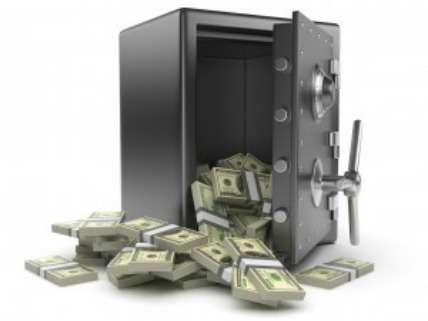Appeals Court Rejects Cops' Hunch-Based Theft of $271,080
The 7th Circuit demands actual evidence of drug trafficking to justify the forfeiture of two brothers' savings.

Early in the morning on June 9, 2012, police responding to a report of a home invasion in North Chicago, Illinois, found $271,080 inside a safe in a minivan parked outside the house. If you are familiar with civil asset forfeiture, you can guess what happened next: The cops took the cash, alleging that it had something to do with drug trafficking. But you might not guess what happened after that: Last week a federal appeals court took a stand against government-sanctioned robbery, saying assumptions cannot take the place of actual evidence when police claim property is tainted by crime.
Pedro and Abraham Cruz-Hernandez, brothers who lived at the North Chicago house with six other people, said the money was their savings from 12 years of legitimate work. Pedro, who owned the minivan, said he had moved the safe there because he was worried that whoever had broken into the house would come back. Unmoved by the brothers' protests, U.S. District Judge Joan Gottschall approved the forfeiture without a trial, saying they had not established that the money was theirs and that in any case the govenment "pointed to substantial circumstantial evidence indicating that the claimants' interest in the money is not legitimate and that the money is connected to criminal activity."
Nonsense, said the U.S. Court of Appeals for the 7th Circuit in a ruling issued last Thursday. In fact, writes Judge Diane Wood on behalf of a unanimous three-judge panel, "the government has presented virtually no evidence that the brothers are involved in drug trafficking." While police found "a handgun, a digital scale, and a small amount of marijuana" in one of the bedrooms of the house, the government did not establish whose bedroom it was or show any connection between those items and the cash in the van. A drug-sniffing dog supposedly alerted to the van, on the strength of which police obtained a warrant to search the vehicle, and a second dog supposedly alerted to the safe, but no drugs were found in either place, and "the government did not submit to the court any evidence of the dogs' training, methodology, or field performance."
Although it might not be obvious from the way cash-hungry cops routinely behave, the fact that someone has a large amount of currency is not enough by itself to justify a seizure. "Absent other evidence connecting the money to drugs," Wood writes, quoting an earlier 7th Circuit decision, "the existence of money or its method of storage are not enough to establish probable cause for forfeiture," let alone meet the "preponderance of evidence" test for keeping the money. Doing the math, she concludes that the owners' explanation of where the money came from is plausible:
There is evidence in the record that supports the brothers' testimony that they earned the money legally. They documented income since 2000 that between them totaled just over $680,000. After subtracting the money found in the safe and all other expenses described in their depositions and other records, the brothers had approximately $320,214—roughly $1,026 each per month—left to cover living expenses. The government pointed to no evidence suggesting that any of the brothers' evidence of income is fabricated or that they have lavish spending habits. Because the brothers realistically could have saved the $271,080 at issue, there is a genuine dispute of fact that precludes summary judgment for the government.
Given the weakness of the government's case and the plausibility of the brothers' story, Wood says, Pedro and Abraham Cruz-Hernandez deserve their day in court. "There is a genuine dispute over whether the money in this case is substantially connected to drug trafficking," she concludes, and "a jury reasonably could believe that the government has failed to meet its burden to prove that connection." The 7th Circuit therefore sent the case back down to the district court, where the government will have to try a bit harder if it wants to keep the cash.
That may not sound like a resounding victory for due process and property rights, but the scrutiny the appeals court applied to this case is a refreshing change from the rubber stamp employed by other circuits. In 2006, for example, the U.S. Court of Appeals for the 8th Circuit, reversing a more skeptical federal judge, upheld the forfeiture of $124,700 that a Nebraska state trooper took from Emiliano Gonzolez after pulling him over for speeding. Gonzolez said the money was intended to buy a refrigerated truck for a produce business, but the cops figured all that cash must have come from selling drugs, or maybe it was intended to buy drugs. The details were not important, as long as the result was more funding for the Nebraska State Patrol. As in this case, there was no evidence that Gonzalez had ever been involved in drug trafficking.
[Thanks to Nick Sibilla for the tip.]
